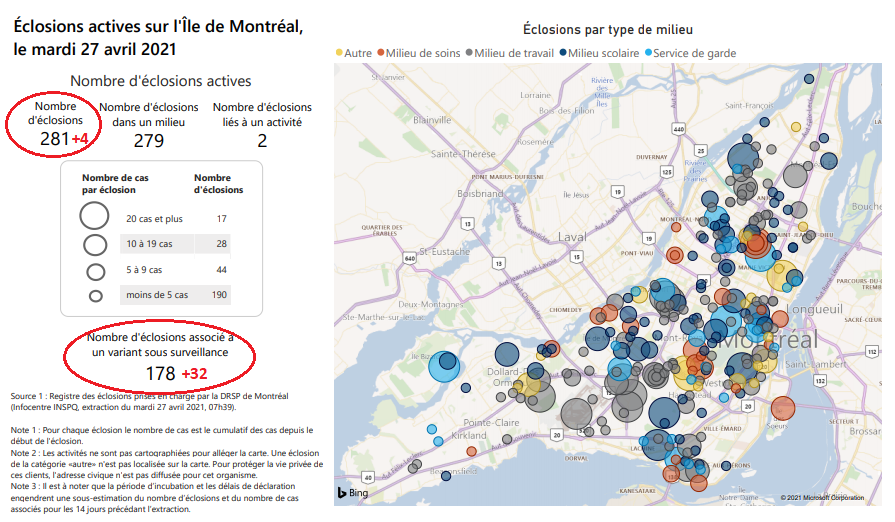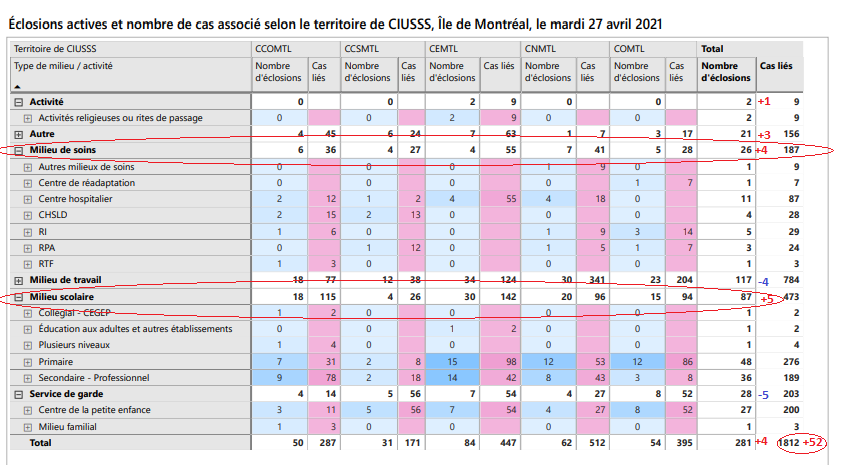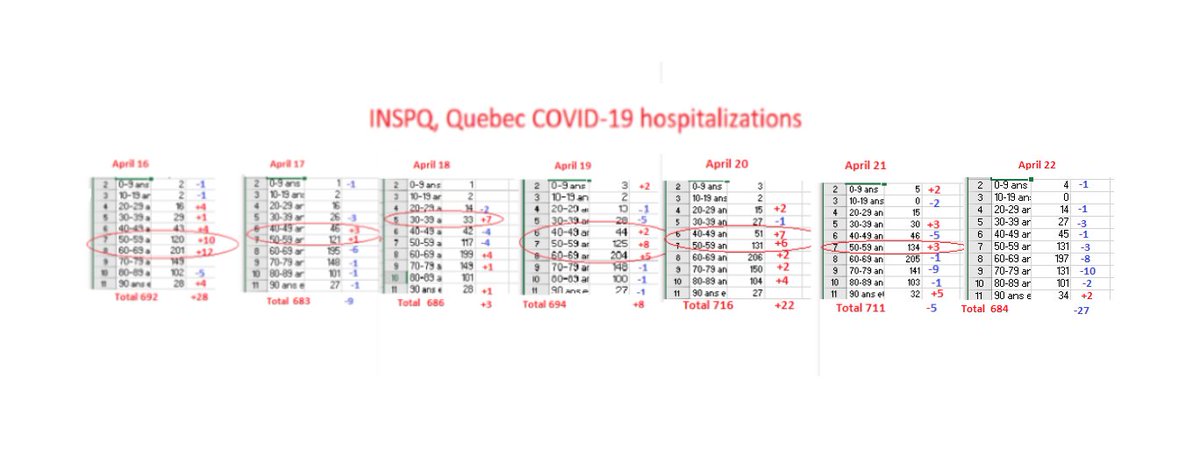
1) Quebec on Friday reported five more cases of the feared P.1 variant, including a single case for the first time in the Capitale-Nationale region. In this thread, I will provide an update on the more transmissible variants circulating in the province. 
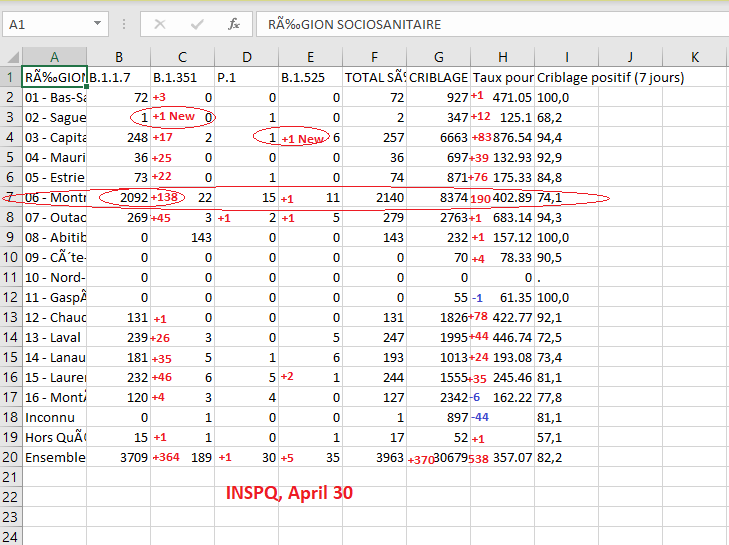
2) The P.1 variant has been responsible for the massive third wave in Brazil that has caused tens of thousands of #COVID19 deaths. But to date, Quebec has reported 30 confirmed cases of P.1. That compares with 645 in Ontario, 944 in Alberta and 2,063 in British Columbia.
3) The predominant variant by far in Quebec is B.1.1.7. Quebec’s public health institute reported 364 more sequenced cases of B.1.1.7., which was first detected in the U.K. Montreal continues to post the highest number of B.1.1.7 cases in the province. 
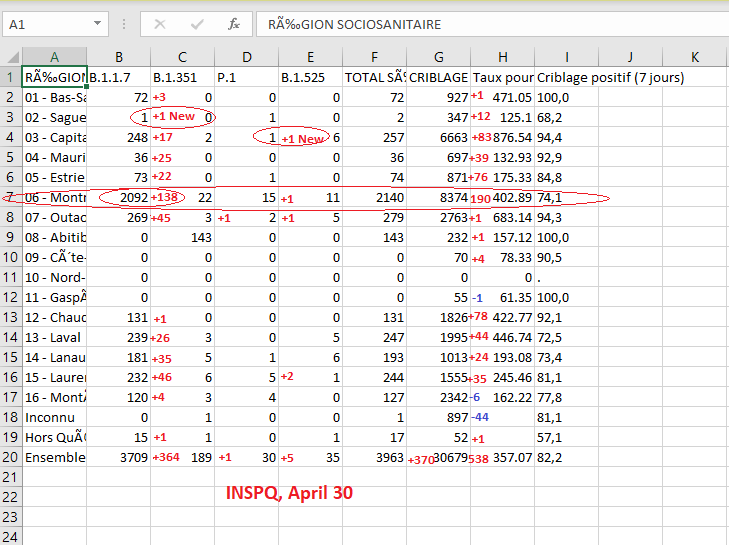
4) British researchers released a study Friday of #COVID19 among health workers finding one Pfizer dose was insufficient to protect them against B.1.1.7. Nineteen ER staff at St. Mary's Hospital in Montreal have likely contracted B.1.1.7 after one dose. montrealgazette.com/news/local-new…
5) This sentinel event at St. Mary’s Hospital, coupled with the U.K. study, have obvious implications for the vaccine rollout in Quebec. At present, just 1% of Quebec’s population has received both doses. (My apologies for a tweet yesterday that had the incorrect percentage.)
6) Meanwhile, Montreal’s rolling seven-day average inched up to 12.68 cases per 100,000 residents. One borough reporting lots of new cases is Saint-Laurent, with a #COVID19 positivity rate of 8.2% (the highest in the city), but down from 19.5% during the peak of the second wave. 
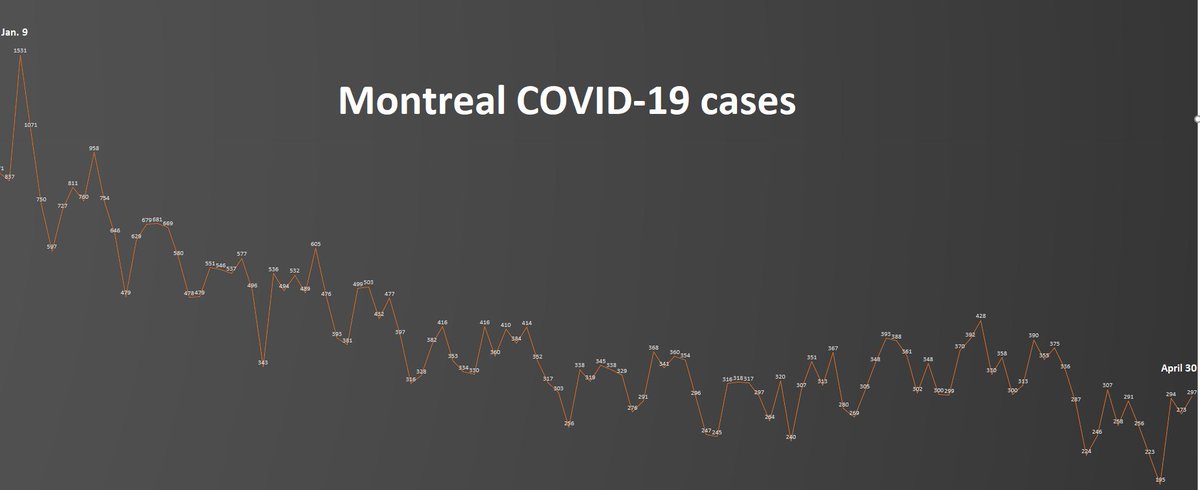
7) Perhaps the best news is the steady decline in #COVID19 hospitalizations. Quebec reported a drop of 31 such hospitalizations to 592 Friday, the sharpest daily decrease since Feb. 15. However, see the chart below showing hospitalizations still rising in the 50-plus age group. 

8) The number of #COVID19 outbreaks also fell across the province by 33 to 1,139. The biggest decreases were observed in the workplace and in schools. However, with schools set to reopen in Capitale-Nationale and Chaudière-Appalaches this Monday, #COVID19 cases might rebound. 

9) But Health Minister Christian Dubé tweeted Friday that given the improving epidemiological situation, “everything is in place for a safe return” to school in those regions. Let’s all hope Dubé is right, with just 1% of Quebec’s population fully vaccinated. End of thread.
• • •
Missing some Tweet in this thread? You can try to
force a refresh

